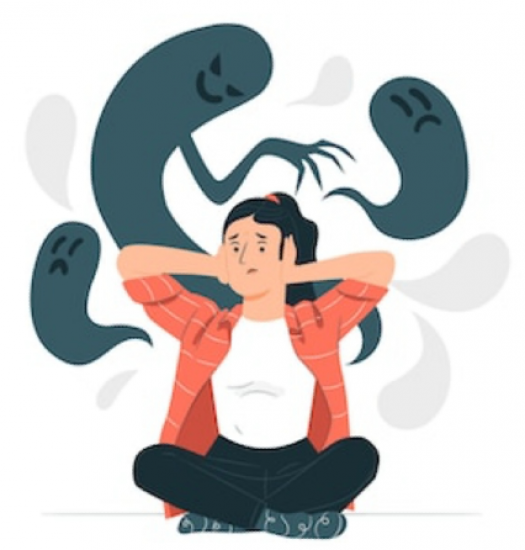According to a survey of Mental Health and Wellbeing in England, 1 in 6 people aged 16+ experiences symptoms of anxiety or depression. Occasional anxiety is common for all of us; however, if you experience intensive, excessive, and persistent worry and fear about daily life situations, it is an indication of an anxiety disorder.
A significant number of people don’t seek help, are misdiagnosed, or don’t know they have anxiety. Identifying the symptoms of anxiety is the first step toward its solution. So, you must be familiar with the common symptoms of anxiety disorders so that you can recognize them in you and your loved ones and seek anxiety cognitive behavioural therapy (CBT) on time.
What does anxiety feel like? What are the symptoms of anxiety disorder?
Anxiety isn’t the same for all. It feels different for everyone. In general, people who have anxiety feel tense, nervous, or unable to sit still and relax. They think a lot about bad experiences over and over and worry about the things that might happen in the future. They often have a sense of terror or fear the worst. Many people also worry about the anxiety itself and want lots of reassurance from other people.
While anxiety is a mental health problem, it can have physicals effects on the body. Some of the effects that people experience during anxiety include:
- Feeling light-headed
- Feeling restless
- Churning feeling in the stomach
- Headaches, backaches, or other pains
- Faster breathing
- Feeling weak and tired
- Trouble focusing
- Experiencing gastrointestinal (GI) problems
- Fast and irregular heartbeat
- Sweating / hot flushes
- Nausea
- Changes in sex drive
- Sleeping problems
Often, people with anxiety disorders experience repeated episodes of sudden anxiety and fear that may reach a peak within minutes. These episodes are called panic attacks.
These feelings of panic interfere with daily life, personal relationships, work performance, and social well-being. They are difficult to control and typically out of proportion to the actual danger. It’s common for people with anxiety disorders to avoid people, places, or situations that trigger feelings of panic.
Symptoms of anxiety may develop during childhood or the teenage years and may continue to prevail during adulthood. However, in some cases, anxiety can also be the result of a medical condition.
There exist several types of anxiety disorders, such as generalized anxiety disorder (GAD), social anxiety disorder (SAD), separation anxiety disorder, panic disorder, substance-induced anxiety disorder, and other specific phobias.
No matter what kind of anxiety you have, proper treatment can help. If you are also experiencing similar symptoms or notice them in your loved one, don’t wait any longer to schedule an appointment for anxiety CBT treatment in London.












